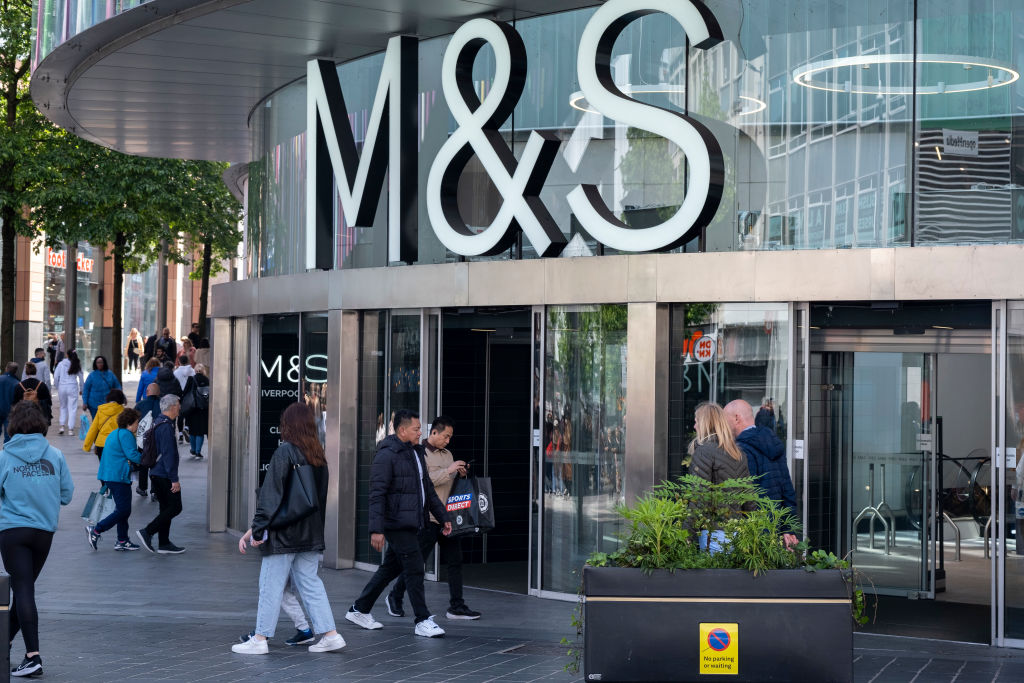M&S smashes profit expectations on the back of strong food sales
Marks & Spencer’s half-year profits rose 17.2% to £407.8 million, well ahead of the £359 million analysts were forecasting


Get the latest financial news, insights and expert analysis from our award-winning MoneyWeek team, to help you understand what really matters when it comes to your finances.
You are now subscribed
Your newsletter sign-up was successful
Want to add more newsletters?

Twice daily
MoneyWeek
Get the latest financial news, insights and expert analysis from our award-winning MoneyWeek team, to help you understand what really matters when it comes to your finances.

Four times a week
Look After My Bills
Sign up to our free money-saving newsletter, filled with the latest news and expert advice to help you find the best tips and deals for managing your bills. Start saving today!
Marks & Spencer has smashed profit expectations, with the retailer’s food department returning stellar results that sent its shares to fresh nine-year highs.
The company’s half-year profits rose 17.2% to £407.8 million, it told investors this morning, well ahead of the £359 million analysts were forecasting.
The rise marks a significant turnaround for M&S, which returned to the FTSE 100 index of Britain's biggest listed companies for the first time in four years in August last year after a sharp increase in its share price. M&S was one of the FTSE 100’s founding members.
MoneyWeek
Subscribe to MoneyWeek today and get your first six magazine issues absolutely FREE

Sign up to Money Morning
Don't miss the latest investment and personal finances news, market analysis, plus money-saving tips with our free twice-daily newsletter
Don't miss the latest investment and personal finances news, market analysis, plus money-saving tips with our free twice-daily newsletter
Despite the profit jump, M&S chief executive Stuart Machin said there was still more to be done: “The easy thing to do today would simply be to say that these are good results, but that wouldn’t be the right thing to do.
“In the spirit of being positively dissatisfied, we have so much to do over this year and beyond. Despite our strong trading momentum, there is much more opportunity for future growth and that energises us.”
Food revenue rose 8.1% and adjusted operating profit for the division increased by more than a third.
Machin added: “Over 1,000 food products are being upgraded and 1,400 new lines are being launched across the year, putting us even further ahead of the pack on quality credentials, and value perception is the highest it’s been in a decade.”
What is behind the M&S turnaround?
Some of the recent improvement is down to factors beyond M&S’s control. Like other retailers, it initially benefited from the end of the pandemic and the return of consumers to the high street.
Problems with rival Waitrose have also led some shoppers to switch to M&S for food. Meanwhile, the recent cost-of-living crisis has seen many clothes buyers focus on affordable quality at the expense of high fashion.
However, it is hard to dispute that M&S deserves credit for embracing online sales, which now account for nearly a third of revenue. The company has also cut costs by boosting efficiencies, especially in logistics. It has closed down tired and poorly performing stores in favour of newer, more modern stores in better locations.
Just two years into a long-term reorganisation, the potential gains are far from exhausted. At the same time, the closure of several well-known rival brands on the high street, as well as the continued expansion of its online businesses, should also help.
Overall, M&S has seen sales grow by half over the past three years, with its profits expanding significantly during the same period. Sales are expected to keep growing over the next few years.
Another sign that it has turned the corner is the decision at the end of last year to resume paying the dividend that it stopped during the pandemic.
Get the latest financial news, insights and expert analysis from our award-winning MoneyWeek team, to help you understand what really matters when it comes to your finances.
Chris is a freelance journalist, and was previously an editor and correspondent at the Financial Times as well as the business and money editor at The i Newspaper. He is also the author of the Virgin Money Maker, the personal finance guide published by Virgin Books, and has written for the BBC, The Wall Street Journal, The Independent, South China Morning Post, TimeOut, Barron's and The Guardian. He is a graduate in Economics.
-
 Should you buy an active ETF?
Should you buy an active ETF?ETFs are often mischaracterised as passive products, but they can be a convenient way to add active management to your portfolio
-
 Power up your pension before 5 April – easy ways to save before the tax year end
Power up your pension before 5 April – easy ways to save before the tax year endWith the end of the tax year looming, pension savers currently have a window to review and maximise what’s going into their retirement funds – we look at how
